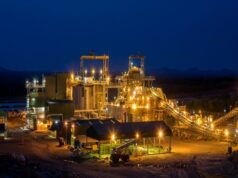Burkina Faso’s mining sector is booming, and gold has been the country’s leading export since 2009. This situation is on the way to giving Burkina Faso the status of a mining country, with some 700 prospecting permits throughout the country. The sector is generating tangible economic and social benefits. According to a World Bank study on the “diagnosis of the private sector in Burkina Faso”, in 2018 Burkina Faso ranked 9th in the world and 1st in Africa in terms of gold exploration budgets. More than 20% of gold exploration budgets in Africa in 2018 were for Burkina Faso, despite the negative impact of the high risks associated with insecurity.
Like any activity, the extractive sector is subject to taxation. In recent years, African governments have introduced tax reforms that offer temporary exemptions from the ordinary law applicable to taxpayers. In the land of men of integrity, a favourable tax system has been chosen in the hope of making investment more attractive.
Mining taxation is not left behind. It offers a range of incentive mechanisms to encourage mining investment in the country, in line with international best practice.
According to the report on the tax policy study carried out by the Centre for Study and Applied Research in Public Finance (Centre d’Etude et de Recherche Appliquée en Finance Publique, CERA-FP), an NGO that fights IFFs and produces reports on IFFs in several sectors, the tax benefits included in the 2015 Mining Code are offered according to the three phases of the mining project, including the exploration phase, the construction phase and the exploitation phase.
The biggest exemption relates to value added tax (VAT). Under the 2015 Mining Code, equipment, raw materials and materials intended for research activities and whose importation is necessary to carry out the research programme are subject to the payment of several taxes. However, this equipment benefits from reduced tax rates.
As a reminder, taxation is the set of practices used by a State or local authority to collect taxes and other compulsory levies. It plays a key role in a country’s economy. It helps to finance the country’s needs and is the source of public spending (motorway works, construction of public buildings, etc.).
Rachid Ouédraogo
#Mines_Actu_Burkina










